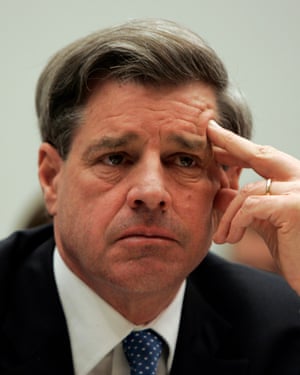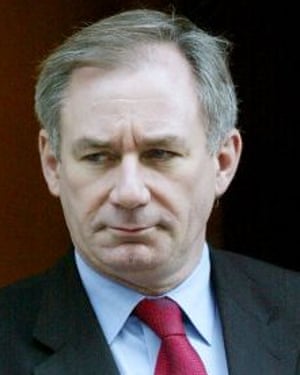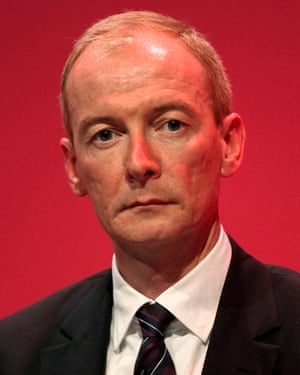We’re going to close our rolling coverage of the Chilcot report with a summary of the day’s key developments and reaction.
- Sir John Chilcot’s 6,000-page report on the Iraq war and occupation delivered a crushing verdict on Tony Blair’s decision to join the US invasion, finding a cascade of mistakes and bad strategy that led to years of devastating mismanagement and strife.
- Key findings include: Blair deliberately exaggerated the threat posed by Saddam Hussein; the UK chose invasion before it had exhausted peaceful options; British intelligence produced “flawed information”; the US ignored UK advice on postwar planning; the British military was poorly prepared for war, Blair ignored warnings,kept his cabinet in the dark and had no plans for occupation.
- The report revealed secret letters between Blair and George W Bush, including one in which the then prime minister pledged to the US president: “I will be with you, whatever.” Six days after invasion, he added: “This is the moment when you can define international politics for the next generation: the true post-cold war world order.”
- Blair responded by saying: “I express more sorrow, regret and apology than you can ever know or believe.” But the former prime minister insisted he made the right decision. “I believe it is better we took that decision. I acknowledge the mistakes and accept responsibility for them,” he said. “As this report makes clear, there were no lies, there was no deceit.”
- Bush defiantly insisted the decision to invade was the correct one.“Despite the intelligence failures and other mistakes he has acknowledged previously,” a spokesperson said, “President Bush continues to believe the whole world is better off without Saddam Hussein in power.”
- Blair rejected at least nine findings of the report, including that war was “not a last resort”, that the UK and US undermined the UN, that an insurgency was predictable and that the military and intelligence services share some blame.
- Labour leader Jeremy Corbyn apologised on behalf of the party. He apologised to Iraqis, British soldiers and to “the millions of British citizens who feel our democracy was traduced and undermined by the way in which the decision to go to war was taken”.
- Reg Keys called Blair’s statement the “ramblings of a madman”, saying the former prime minister misled parliament and that his son and other soldiers died in vain.
- Lord Butler and others made limited defenses of Blair, with many saying that he exagerrated the reliability of intelligence but acted in good faith and did not lie. The US diplomat in charge of the occupation in 2003 agreed with several key findings but also argued that the decision to invade was justified.
- Many Iraqis met the report with the grim sense that it only articulated the obvious: that western hubris and incompetence had created the conditions for years more of strife, including Sunday’s bombing, which killed an estimated 250 people in one of the worst atrocities of postwar Iraq.
- The Chilcot report is little more than a footnote to many Iraqis, who are still reeling from one of the worst atrocities of postwar Iraq: a bombing in central Baghdad that killed an estimated 250 people and outraged a country mostly inured by violence, my colleague Martin Chulov reports.
For the mix of mourners staring into the middle distance, desperate relatives wailing for help, forensic officers crouched near puddles and others who stood bewildered by the scale of destruction, it would merely tell them what they already knew: that the war and its aftermath were both grave mistakes.
The few who had seen brief reports from London on Iraqi television shrugged and pointed at the damage when asked what they made of what was effectively Britain’s mea culpa. “This is the reason for all this chaos,” said Bassam Jaber Abayati, a Karrada local. “They should have known better. They should have done this [apologised] earlier. The west should be accountable for all this misery.”
A second local, Ahmed Ali said: “This is the result of the war. It’s all destroyed. What do you want me to say? If I had money I would not live in Iraq another day. I would go anywhere that would take me.”
Throughout the eight-year occupation and chaotic years since, sectarian war and widespread displacement of communities have ravaged the country. Terror attacks have barely relented, with state-backed militias running riot, and first al-Qaida in Iraq and then Islamic State unleashing murderous savagery.
Col Ahmed Hassan, a police officer attached to the interior ministry, said: “There is no excuse for [the decision to invade]. It was an extermination war. This is not the terrorists behind this. It is states against us. This is what all Iraqis feel. There was a high level of engineering behind this and that is the job of countries.”
Fadi Faris, 35, from Amara, an area occupied by the British army, said: “It was a mistake of excuses. They found the worst two reasons to invade, weapons of mass destruction and links to terrorism, and they stuck to them.
“We still live in the way of the dark ages, so we could never use the tools of democracy. It was like bringing a knife and giving it to a child. Under Saddam we had a government with a big problem. Now we don’t have a real government and we only have problems.
“The British, when they came to Iraq 100 years ago, established a good government. Iraq was stable and it was going in a reasonable direction. They learned nothing [about the society] from that time. The US was the real decision-maker. Britain was just an ally. It was not a British plan at all.”
- Russia has claimed it warned the UK of the “unjust and highly dangerous” Iraq war, with its embassy in London seizing on the Chilcot report to boast about its warnings.
“No real WMD in Baghdad, unjust & highly dangerous war. The entire region on the receiving end,” embassy staff tweeted. Since Vladimir Putin assumed the presidency in 1999, the Kremlin has generally opposed western intervention abroad – even though in recent years Russia has grown more active in Georgia, Ukraine and Syria.
My colleague Ian Black reports on reaction around the world:
Franz Klintsevich, first deputy chairman of the defence and security committee in the upper house of Russia’s parliament, said the UK should apologise to the Iraqi people, pay compensation and prosecute the officials who decided on the invasion.
In Iran, widely seen as the greatest beneficiary of the US-led invasion, there was no official comment and the media paid scant attention to the report. The exception was Press TV, an English-language state broadcaster, which provided live coverage of Tony Blair’s press conference.
In Tehran, Hassan Rouhani, Iran’s president, pledged that his country would stand by the Iraqi government in a phone call to the prime minister, Haidar al-Abadi. He expressed his condolences for the recent terrorist attacks that have killed 250 people in Baghdad. Ayatollah Ali Khamenei, Iran’s supreme leader, also failed to mention Chilcot.
Iraqi media was dominated by the mounting death toll in theKarrada bombings. Another story was about Abadi accepting the resignation of his interior minister in the wake of the carnage.
“Iraq as a country has become a battlefield for regional and international powers, and this is one of the most critical consequences of the invasion,” Iraqi political analyst Hadi al-Isami told al-Jazeera, saying Chilcot would do nothing to assuage the country’s plight.
Paul Bremer, the US diplomat put in charge of governing Iraq after the invasion and occupation, has backed several key findings of the Chilcot report.
Bremer agreed in a piece in the Guardian that the US and UK made “inadequate” plans for the occupation of Iraq, and accused both George W Bush and Tony Blair of ignoring internal warnings.

Bremer. Photograph: Susan Walsh/AP “The commission noted that that ‘bad tidings’ tended not to be heard in London,” he said. “The same was true in Washington. Before the war, a few American military officers suggested the need for a substantial post-conflict military presence. They were not heard.”
Bremer also criticized the failure to prevent looting after the invasion and inconsistent military commitments.
“As David Richmond, one of the able British CPA colleagues, told the commission, the coalition ‘never got on top of security’,” he said. “So the coalition gave the impression to Iraqis that we were not serious in this most important goal of any government. No doubt this failure encouraged some members of what became the resistance.”
But the former diplomat agreed with Bush and Blair’s insistence that they made the right decision even if their methods were severely wanting.
“I believe history will agree that it was the correct, if difficult decision to remove Saddam,” he writes. “Had we not done so, today we would likely confront a nuclear armed Iraq facing off against a nuclear armed Iran. Bad as the unrest in the region is today, that would be worse.”
Earlier on Wednesday, a spokesperson for Bush said the former president acknowledges “intelligence failures and other mistakes”, but added “the whole world is better off without Saddam Hussein in power”.
Former defence secretary Geoff Hoon has also stoically defended his and Tony Blair’s conduct in an interview to Sky News. He says he has read only the executive summary of the Chilcot report.
“We do have to learn the lessons of process,” he says. There were ways we could and should have done better.” Hoon says that Blair “accepted those cirticisms, as do I.”
Like Blair, McFadden and Clwyd, he argues that everyone made decisions in good faith.

Hoon. Photograph: Reuters “We know now that there were not weapons of mass destruction,” Hoon says. “Knowing that now we would not have had the legal basis to have gone into Iraq.”
He insists that he saw nothing to suggest that British intelligence had received flawed intelligence – such as a description of a chemical weapon that was suspiciously akin to a device in the movie The Rock. “Had I seen something that doubted it maybe things would’ve been different,” he says, when asked why he didn’t challenge intelligence or Blair.
“I did not detect anyone at that time who did not do anything otherwise than a serious job,” he says. “I believe they were hardworking, conscientious dedicated people.”
“With the benefit of hindsight you can look back on any group of people and say they could’ve done better.”
Q: But wasn’t it your responsibility?
Hoon: “They gave me their best military advice and I certainly challenged that advice from time to time.”
But more often than not, Hoon hints, he deferred to others. “These are peple who devoted their entire lives [to the military and intellgience]. It’s not for politicians to second guess their expert advice.”
Hoon also insists that information never received the ministry about the dire need for equipment to protect against IEDs and the guerrilla warfare that came with occupation and Iraq’s sectarian wars.
There was “no sense of anyone on the ground at the time saying this piece of equipment or that piece of equipment was required”, Hoon says.
“Very little of this information actually made it to the ministry of defense, nevermind to the ministers,” he concludes. “I recognise that overall I was responsible.”
The Labour MP Pat McFadden has given a partial defence of Tony Blair and the decision to invade Iraq on BBC News, saying “these decisions were taken in good faith”.
“Intelligence was not falsified, parliament was not lied to, the cabinet was not lied to,” he says, meaning British intelligence agencies did not falsify material, although they accepted bogus information.

Pat McFadden. Photograph: Gett “This was not unconditional support,” he adds. “All the effort on the British end was to persuade the Americans to go down the UN route.”
McFadden was an adviser to Blair in Downing Street, and defends the former prime minister. “Advisers can advise,” he says, “but a prime minister more than anyone has to make that decision. He still believes it was the right decision, but of course it had many consequences and he’s had to live with them since.”
“He could’ve opted out of not taking part, I don’t think he could’ve stopped the Americans,” he adds. “It was at that time, to use a phrase from our age, a binary decision.”
Like Ann Clwyd he argues that sectarian violence was rampant inIraq before the invasion created a power vacuum out of which a Shia-Sunni civil war erupted. People act as though “history began in 2003”, McFadden says, and as though “now all the extremist violence stemmed from that”.
“But it’s important to stress that’s not the case. We had 9/11 two years before this, we had Bali, and we also had Saddam’s regime, which had engaged in its own horrific killing.”
“I don’t think it was a rush to war, and you know Mr Blair was asked about this today, about whether there could’ve been more time,” McFadden goes on. “The answer he gave was ‘I had to make a decision.’ That’s what a prime minister has to do.”
The French ambassador to the US, Gérard Araud, has taken the Chilcot report as a vindication of his country’s refusal to join the invasion of Iraq.
Araud tweets: “May I remind everybody how France was abused and denigrated for opposing the war? France was right!”
Alongside some statistics about the toll of the war – approximately165,000 civilian casualties, 4,486 American soldiers killed, 179 British service members killed, more than $2tn spent and no weapons of mass destruction found – Araud posted another tweet. “Not only a geopolitical disaster, not only distortion and manipulation but also a human tragedy,” he wrote.
MI6 stood by bogus intelligence
British intelligence agencies accepted false information even after a source told them of a supposed chemical weapon that was remarkably similar to one from the 1996 movie The Rock, my colleague Ewen MacAskill has learned from the report.
The incident is just one of a series of blunders described by the Chilcot report committed by Britain’s overseas spy agency, the Secret Intelligence Service in the run-up to the 2003 invasion of Iraq.
In the incident, the report describes a source providing details about spherical glass containers allegedly filled with chemical weapons at an establishment in Iraq.
MI6 at the time defended the authenticity of the source and the material, according to the Chilcot report. “However, it drew attention to the fact that the source’s description of the device and its spherical glass contents was remarkably similar to the fictional chemical weapon portrayed in the film The Rock,” the report says.
In the 1996 movie, Nicolas Cage, playing an FBI chemical warfare specialist, joins Sean Connery, playing a former British spy, to prevent chemical weapons being launched against San Francisco.
The similarity between the movie and the source’s alleged device had been noted when the MI6 report was first circulated on 11 and 23 September 2002, well before the Iraq invasion in March 2003.
But this and other bogus claims were not formally withdrawn by MI6 until 29 July 2003, four months after the invasion, Chilcot reports.
In a devastating finding, Chilcot said: “SIS did not inform No 10 or others that the source who had provided the reporting issued on 11 and 23 September 2002 about production of chemical and biological agent had been lying to SIS.”
False allegations that Saddam could attack UK targets within “45 minutes” were not withdrawn until 28 September 2004. Bogus information by a source known as Curve Ball that also fed into the case for war was not withdrawn until the following day, 29 September 2004.
The faulty intelligence from MI6 was compounded by Tony Blairwho hardened up the information when he wrote the foreword to the so-called “dodgy dossier” in September 2002. Chilcot concluded that Blair presented the assessments of the spy agencies to parliament with a “certainty” not justified by available intelligence.
Chilcot blames the intelligence community not just for passing on bogus information in the first place but failing to correct the prime minister when he toughened up the so-called intelligence.
The intelligence agencies had a serious blind spot. “At no stage was the proposition that Iraq might no longer have chemical, biological or nuclear weapons or programmes identified and examined by either JIC (the Joint Intelligence Committee, the umbrella organisation representing all the intelligence agencies) or the policy community.”
In the foreword to the dossier presented to the public in September 2002 preparing the case for war, Blair said he believed the intelligence had “established beyond doubt” that Saddam had continued to produce WMDs.
But the Chilcot report concludes: “The assessed intelligence had not established beyond doubt that Saddam Hussein had continued to produce chemical and biological weapons.”
[Source:- The Guardian]





